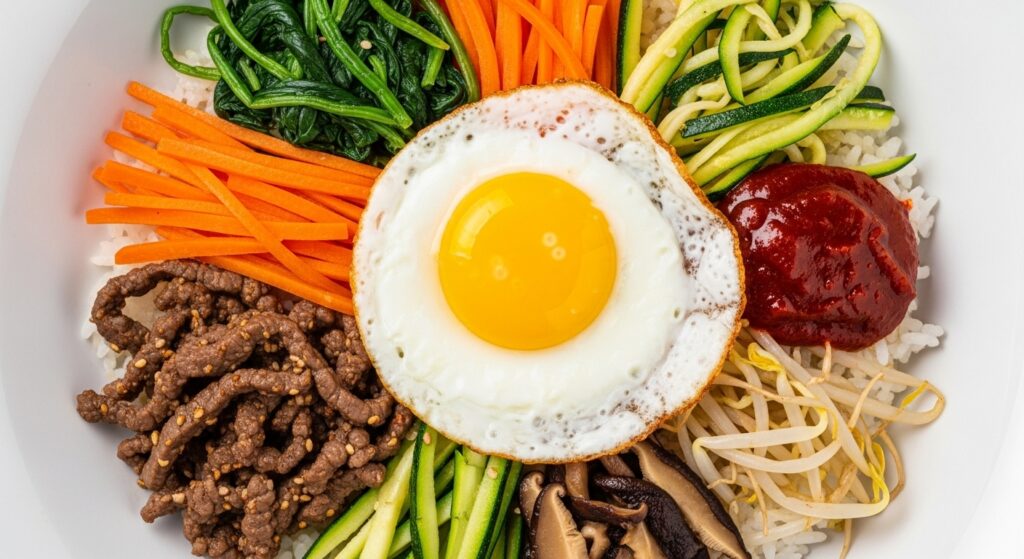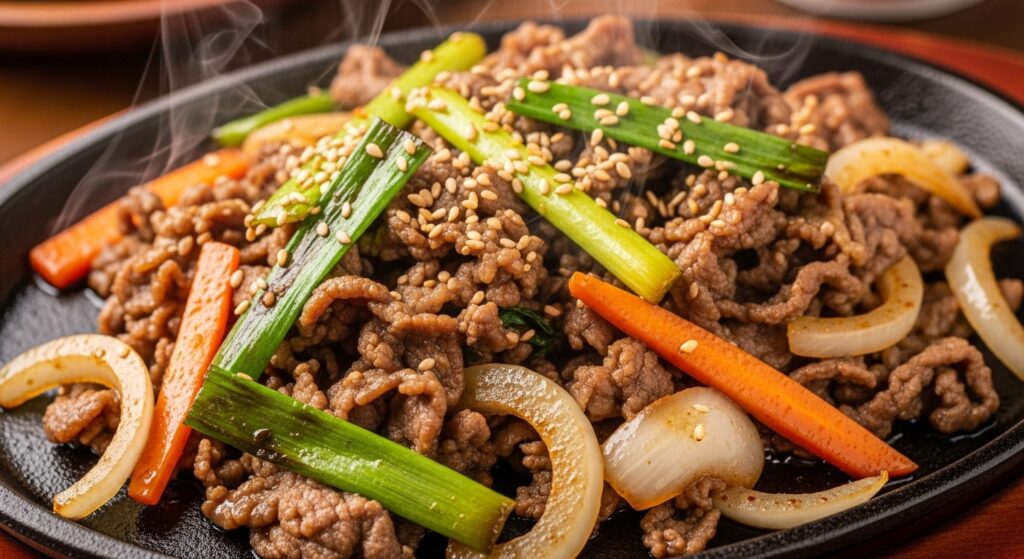The Sound of Morning — When Care Begins in the Kitchen
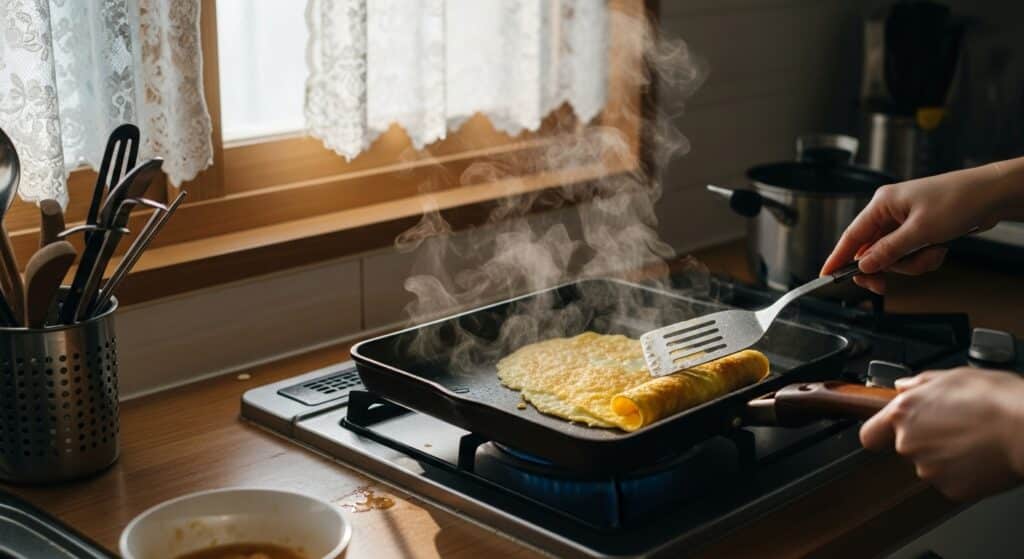
There’s something quietly poetic about the sound of eggs meeting a warm pan in the early morning. A soft hiss, a gentle swirl of yellow, and a pair of careful hands rolling layer after layer into something perfectly shaped. To most, it’s just a simple egg roll — but in Korea, Gyeran-mari, the rolled omelette, is a language of care spoken through movement, patience, and the rhythm of everyday life.There’s a quiet poetry in the way Koreans treat leftovers.
A bowl of rice from yesterday and kimchi aged beyond its prime somehow meet again in a pan, transforming into something warm, soulful, and deeply human.
Packed with Love — The Heart Inside Every Lunchbox
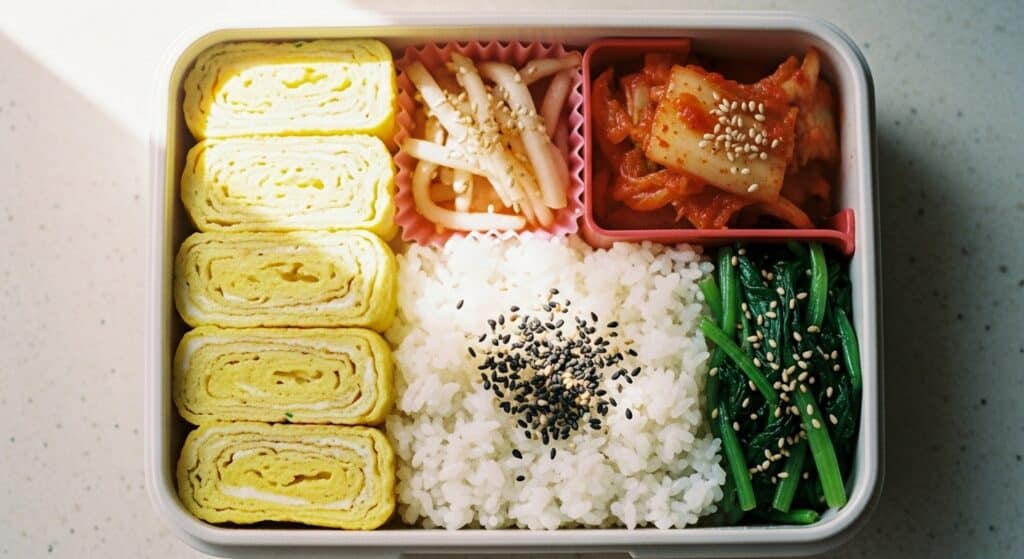
Every Korean child remembers the yellow roll tucked neatly into their lunchbox. It wasn’t just food — it was love, folded and packed into something warm. While sandwiches or salads might be assembled quickly, Gyeran-mari requires attention. Each thin layer must be cooked, rolled, and shaped by hand. It takes time, but that’s the point — it’s not about efficiency, it’s about devotion. In that deliberate slowness, you can almost feel a mother’s heartbeat.
The Art of Patience — Layers That Tell a Story
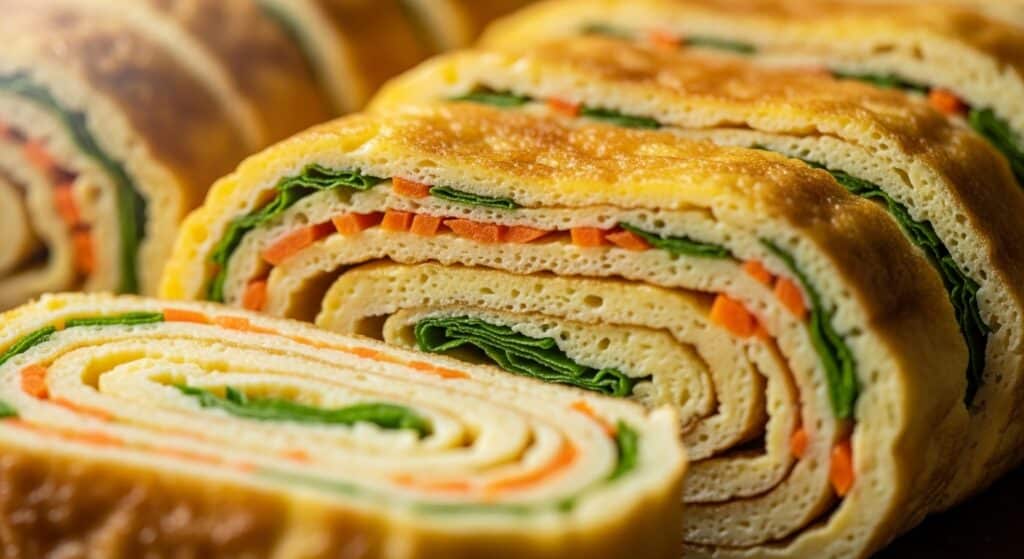
In the West, omelettes are often spontaneous — whisked, flipped, and folded in minutes. But the Korean rolled omelette carries a sense of mindfulness. Each roll must align, each layer thin but strong, each motion deliberate. It’s not just cooking; it’s choreography — the kind that mothers, grandmothers, and even young adults have performed for generations. Gyeran-mari teaches patience disguised as breakfast.
Simplicity That Feels Universal
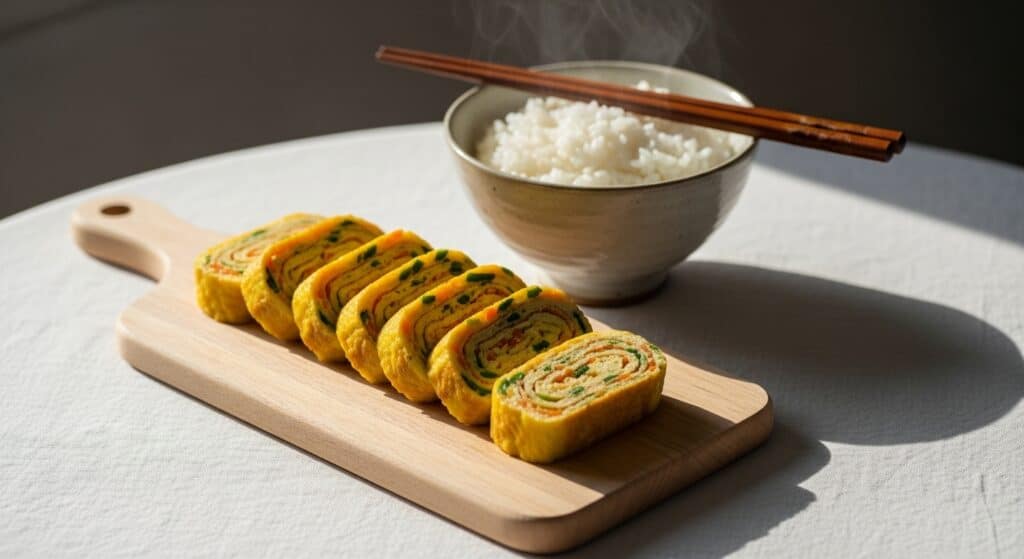
What makes it so universal is that you don’t need to be Korean to feel its warmth. Across cultures, simple meals often hold the deepest meaning. The way the yolk glows against the wooden cutting board, the way it sits beside a bowl of rice — it evokes something familiar, even for those who grew up oceans away. It’s a reminder that food doesn’t need to be fancy to be emotional.
And to bring a touch of freshness to your meal, pair it with Oi-muchim (Spicy Cucumber Salad) — a crisp, spicy side that balances the softness of Gyeran-mari perfectly.
The Quiet Art of Care
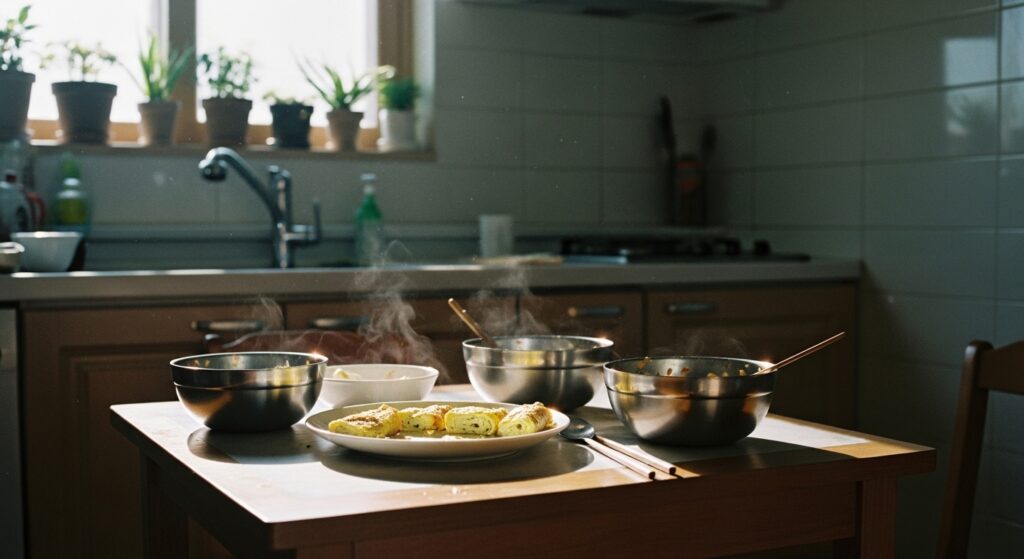
Perhaps that’s why Gyeran-mari endures. It’s the food you make when you have little, yet want to give much. The dish that says, I care about you, without words. In every roll is an act of quiet generosity — a small performance of love repeated through decades. And as the steam rises in a small kitchen somewhere in Seoul, it reminds us that care doesn’t always have to be loud. Sometimes, it’s as silent and soft as an egg slowly turning to gold.
“Korean lunchboxes are never complete without Kimbap — try my recipe to make the perfect pair with Gyeran-mari.”

Gyeran-mari (Korean Rolled Omelette)
Equipment
- 1 Rectangular or small nonstick frying pan For rolling the omelette evenly
- 1 Spatula To roll and flip the omelette gently
- 1 Mixing bowl To beat and season the eggs
- 1 Chopsticks or whisk For mixing the eggs smoothly
Ingredients
- 4 eggs large
- 2 tbsp carrot finely chopped
- 2 tbsp green onion finely chopped
- 2 tbsp ham optional, finely chopped
- 1 tbsp cooking oil for frying
- pinch salt to taste
Instructions
- Crack the eggs into a mixing bowl and whisk until smooth.
- Add chopped carrot, green onion, ham, and a pinch of salt. Mix well.
- Heat a rectangular pan over medium-low heat and lightly coat it with oil using a paper towel.
- Pour half of the egg mixture into the pan and spread it thinly.
- When the bottom is mostly set, start rolling the omelette gently from one side to the other.
- Push the rolled egg to one side of the pan and pour the remaining egg mixture into the empty space.
- Continue rolling until all the mixture is used and the omelette is golden.
- Remove from the pan, let it cool slightly, and slice into bite-sized pieces.

